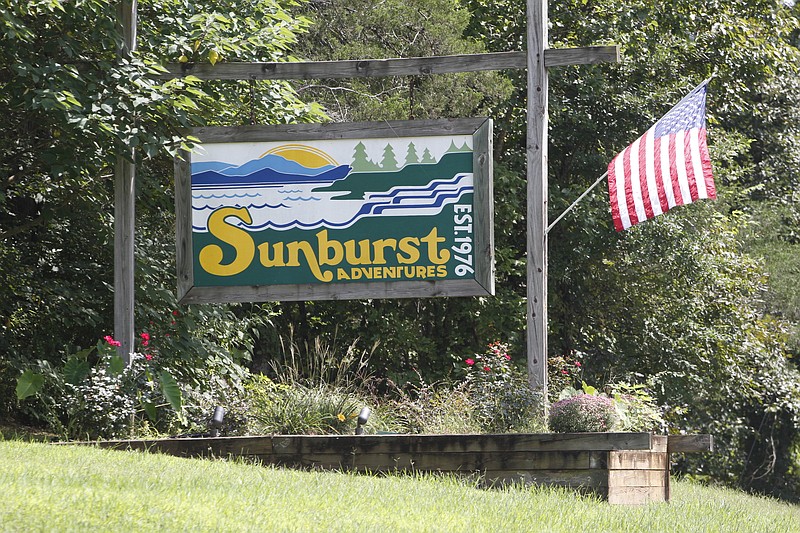The original paddling company to offer commercial whitewater rafting trips on the Ocoee River has defaulted on payments, leading the lender to initiate the process of foreclosing on the company's property. However, the company plans to remain open through the season and continue leading whitewater trips.
Sunburst Adventures - legally known as Ocoee River Whitewater Rafting LLC. - is in the process of filing for Chapter 11 bankruptcy protection, which will allow the business to continue operations while it reorganizes and pays its debt under protection of the U.S. Bankruptcy Court. Owner Gary Scott Mantooth said the reorganization will allow the company to remain open and continue hosting visitors throughout the season.
"All parties that are involved are working for a solution to the issue, and we're confident that we're going to get it resolved," he said. "We're going to do what we need to do to keep this afloat."
The business defaulted for lack of payment. A legal notice in the Times Free Press publicized the property will be sold at an auction April 24 at 11:30 a.m. However, a Chapter 11 filing would prevent that.
Sunburst Adventures opened in 1976, leading the first commercial trips down the Ocoee River, according to company owners. The river is the most traveled whitewater river in the U.S., but a short season, lots of competition and shrinking margins have made business increasingly difficult for the 22 companies that operate on the river.
"Some people get at it and others struggle," Ocoee River Outfitter Association president and Ocoee Adventure Rafting owner Rob Paden said. "I hate to see any rafting company go through a hard time like Sunburst. We're a close knit community, and we all care for each other and it's too bad."
Rafting companies have considerable overhead costs that include high insurance premiums, licenses, a river tax on each ticket sale, equipment, staffing, busing and more. Commercial companies have 116 days per year, rain or shine, for rafting trips. If weather isn't ideal, they often take a considerable revenue hit.
"The season has started, but for March, April and May, [rafting is] only available on the weekends, so you don't have full cash flow, but a lot of the insurance is due at that time," Paden said. "That's a pretty heavy expense, and you have to start paying employees early in the season when you're really not making money. You have to start out with some serious cash at the beginning of the year to make it to a point where you're actually making money."
Mantooth also points to online coupons cutting margins. The outfitters used to receive full price for ticket sales, but as companies began offering discounts, his company began doing so to stay competitive, he said.
An agreement between federal and state agencies and rafting groups have limited the number of licenses for companies operating on the river, meaning there is usually demand for the licenses if Mantooth chooses to sell. Currently, there are 24 permits and 22 viable companies operating under those permits, Paden said.
He has witnessed other companies struggle in the past, but he doesn't remember a company "going out of business, closing their doors and walking away," he said. There is often reorganization, and if an owner chooses to sell, there has always been someone willing to buy the license, he said.
Contact staff writer Mark Pace at mpace@timesfreepress.com or 423-757-6659. Follow him on Twitter @themarkpace and on Facebook at Chattanooga OutdoorsTFP.
